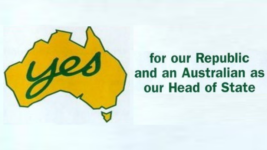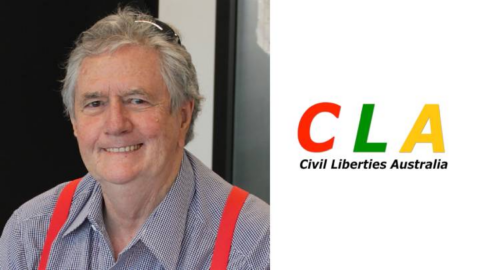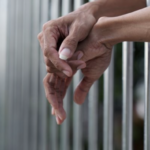An Australian Republic: Morrison Scandal Marks Death Knell of British Crown

Governor general David Hurley stood by as then prime minister Scott Morrison made a powerplay to obtain the keys to five additional government departments.
Holding ultimate power, Hurley, the Queen’s representative down under, either did this with the understanding that something was amiss with the appointments being secreted, or he absentmindedly didn’t understand the full implications of the process that he was a key party to.
Either way the actions of the current GG and the former PM have shown “there is something rotten in the state of” Australia, with its system of governance still intimately linked to the British Crown, even if the Queen’s participation, as head of state, is purely ceremonial.
Solicitor general Stephen Donaghue’s assessment of Morrison’s secret power grab indicates that the ex-Liberal leader planned the attack on democracy early on, while Hurley’s own official documents show that he neglected to publicly diarise the questionable appointments as per protocol.
That the nation’s links to the UK, a relic of its colonial past, are outdated is well understood. And one positive that’s come out of Morrison’s trashing of the system is that it’s stoked determination to take Australia in the direction of becoming a republic, with ultimate power residing in the people.
Shedding the monarchy
“PM Morrison’s subterfuge was so underhand that even his fellow Liberals and Nationals decried it,” Civil Liberties Australia (CLA) chief executive Bill Rowlings told Sydney Criminal Lawyers.
“But you see the same behind-the-scenes power wielded by Prince Charles in England. He and the Queen can veto proposed laws that affect them,” the rights advocate continued. “We must avoid empowering privilege, whether it takes prime ministerial or royal form.”
This nation continues to be a constitutional monarchy. The Queen of Australia is Elizabeth II, which is why her head in stamped into the back of our coins. And while many Australians scoff at this set of circumstances, two decades ago, a referendum on becoming a republic saw monarchists trump.
The 6 November 1999 national vote resulted in 45 percent of the public voting to do away with the British royals, while 55 percent wanted to preserve the link. But evidence shows that much of the vote against severing ties related to uncertainties about how a republican system would operate.
“The easiest way would be to get rid of the royals entirely,” Rowlings added. “That would eliminate both the governor general and the Queen/King in one fell swoop.”

A colonial relic
On the advice of former attorney general Christian Porter, Morrison was able to request Hurley appoint him to be a dual administrator of five government portfolios, with the onset of the COVID pandemic being the stated excuse.
Morrison was able to achieve this deceit as the current political system rests upon a range of non-legislated conventions, which are followed due to their customary nature. However, as the last PM has shown, these can be taken advantage of when a minister doesn’t exercise good faith.
As the Queen’s representative in this country, the GG has the power to appoint new ministers.
However, he’s also obliged to follow the directions of the PM. And at present, no one is certain whether he kept quiet about the secret ministerial appointments as an act of complicity.
“It’s notable that GG Hurley, a military man, when caught out signing secret documents, went immediately for the Nuremberg defence, ‘I was just following orders,’” quipped Rowlings.
“If the GG position does nothing but follow orders and rubber stamp prime ministers who have lost their moral compass, what good is the position?”
The civil liberties campaigner suggested that if the GG is adding no value, but costing a fortune, he should be got rid of, as currently, he’s costing the taxpayer $600,000 in annual wages, plus a “bucketloads of other benefits”, including two estate residences and global RAAF flights.
“Nothing will save the governor general”
The constitutional monarchy of Australia was founded in 1901. Today, the society under its governance is distinctly different from that of a century ago, when Anglo politicians governed over an overwhelmingly white constituency, whilst continuing to deny the continent’s First Nations.
The initial pieces of legislation drafted by Australian federal parliament contained a range of laws that made up the White Australia policy, in an attempt to maintain a society that resembled that of Britain, with its Union Jack hanging from every flagpole.
Yet, right now, we have a maturing nation that is beginning to grapple with the legacy of invasion and dispossession, whilst the national constituency is one of the most multicultural on Earth.
The links to the Crown continue to serve their original purpose, however. The vestiges of the British system maintain the veneer of an Anglocentric society with the vast majority in positions of power and representations in the media continuing to reflect this.
On the surface, the governor general appears as one of these ceremonial leftovers from the colonial past. But the sacking of then PM Gough Whitlam by GG Sir John Kerr in 1975, and the role of Hurley in the recent scandal, both reveal that this symbolic head holds too much unnecessary power.
Legislating toward the shift
PM Anthony Albanese has committed to holding a fresh referendum on the republic if Labor is re-elected into power next election. And while some commentators have suggested the Morrison scandal warrants the national vote being held earlier, Rowlings begs to differ.
“After 10 years of depressive negativity, the national mood is more buoyant recently,” the CLA chief executive said. “But there’s heaps of work to do to fix the inaction and the misguided actions of the past decade. Much of the work involves creating brand new laws.”
According to Rowlings, the priorities are creating the national integrity commission, giving voice to First Nations peoples, and whistleblower and defamation reform. So, on his estimation, with most of the drafting taking place by the end of this year, these laws should be passed by the end of the next.
And following from this, the major campaign should then centre on legislating a Human Rights Act that will not only establish the rights of all, but it will also serve to trigger a reform process involving our numerous rights-eroding counterterrorism, national security and emergency laws.
“We expect Labor or a Labor-Greens coalition to win that election. Both parties and many independents, like Andrew Wilkie and the teals support a Human Rights Act,” Rowlings said in conclusion.
“So, we should be able to create all new legislation for the republic – and there’ll be lots of it – and change systems ready to become our own people for the first time, literally, in 2026.”







